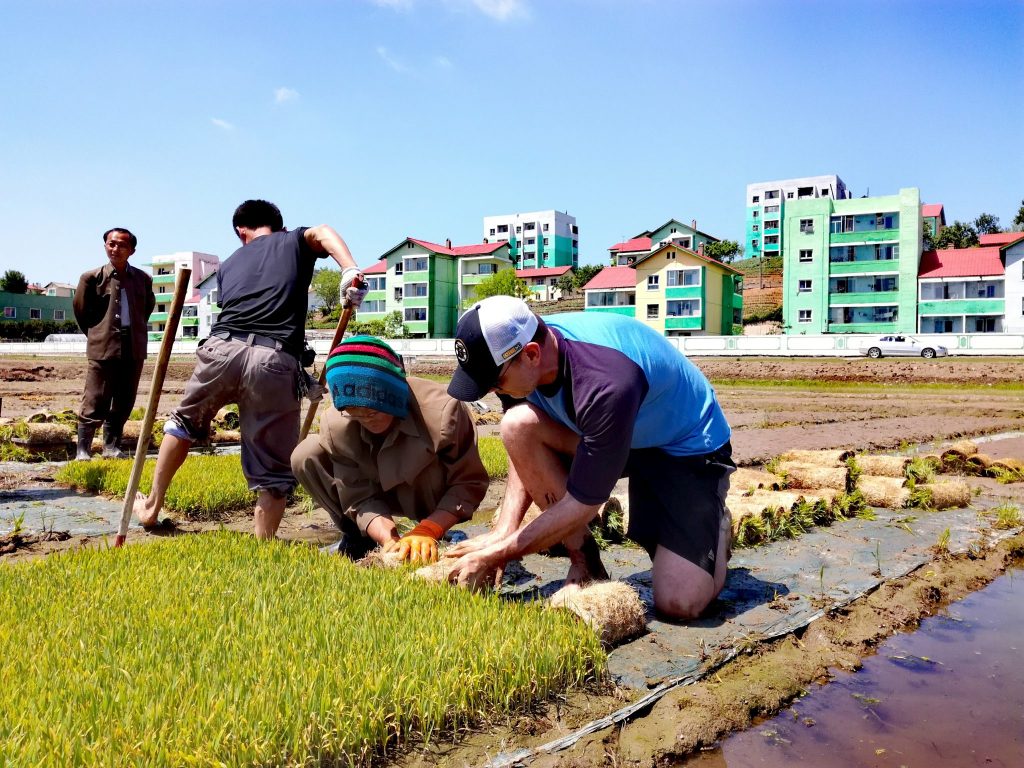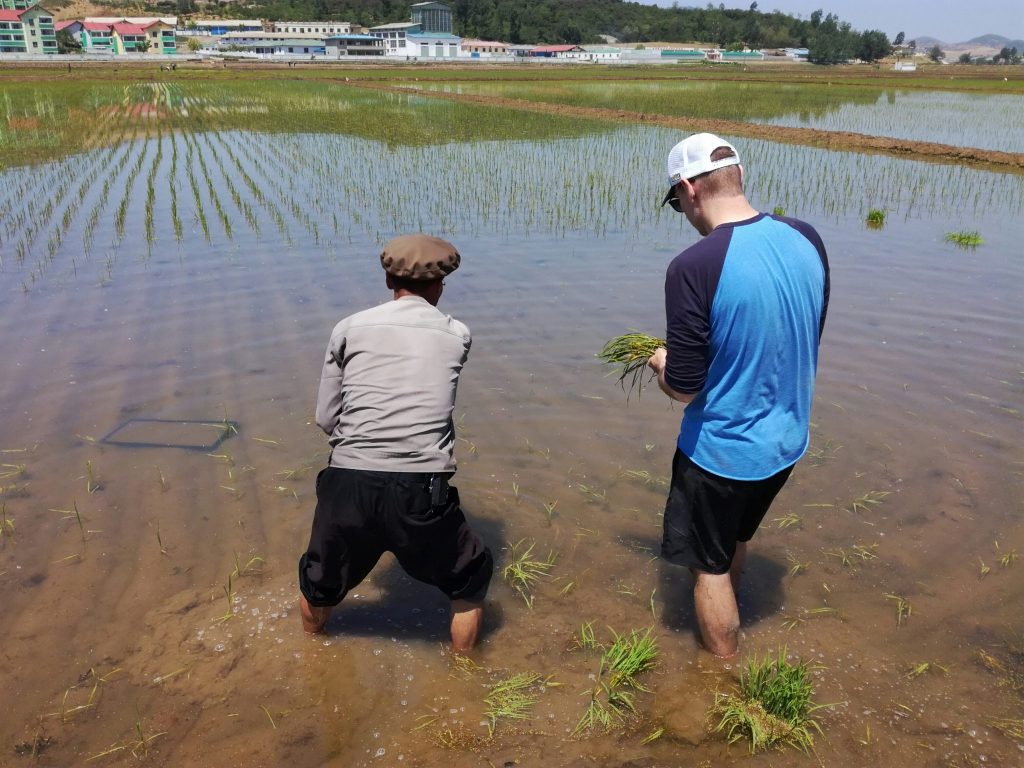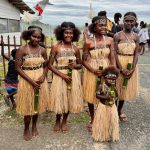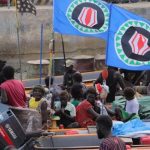We have been working in North Korea for over a decade, making a point of contributing to various appeals, charities, or funds as often as possible. More recently, we’ve felt that we would like to do something far more personal and proactive to give back to the wonderful people of the country. In 2015 we finally got the chance to expand our charity to farming.
With the help of our Korean partners we started the Farming Volunteer Program, where we offer support to a co-operative farm on the outskirts of Pyongyang. This is a completely not for profit program which bring tourists and locals together. I was lucky enough to go this year – here was my experience!
We left Pyongyang bright and early to set off for the 45 minute drive to the Chilgol co-operative farm. For those that don’t know, May to June is rice planting season in North Korea and something that everyone in the country contributes to. This included our amazing Korean guides, Mr.Li and Ms.Kim, who joined us for the day. After some brief introductions with the farmers, we started work on rolling the rice seedlings.
Farming has changed in recent years and now most rice is planted by a machine. These rolls of seedlings are fed into the machine and makes the process much faster, allowing the farmers more time to spend on other produce. But like most things, the process isn’t perfect and some hand planting is still needed. Learning the ropes of rice planting.


After a hard but fun few hours in the fields we headed in for lunch with the farmers. We’d brought some meals prepared by the Yanggakdo Hotel and the farmers had prepared some of the most delicious fruit and vegetables I’d tasted in North Korea. Lunch was spent feasting, drinking local soju and getting to know the farmers better. Topics of conversation ranged from family, ping pong and politics, to farming, soju and missiles. After such an excessive lunch and busy morning, some of us went for a siesta, while others kept chatting with the farmers and played ping pong. FYI, never challenge Mr. Li to a game, he was an absolute machine and smashed everyone!
The afternoon saw us visiting the farm kindergarten. The children sang and danced, and eventually we were dragged in to join in the fun. This was followed by a tour of the extensive vegetable fields and greenhouses. Aside from growing rice, the farm also grows cabbage, tomatoes, strawberries, plums, tobacco, sesame seeds, potatoes, onions, corn, cucumbers and chillies. Much of this produce is used for the meals for all the 100+ families that work on the farm and any leftovers are sold or exchanged at the local market.
We finally said goodbye to the farmers and take the 45 minute drive back to Pyongyang to enjoy the sunset and reflect on an amazing day.





